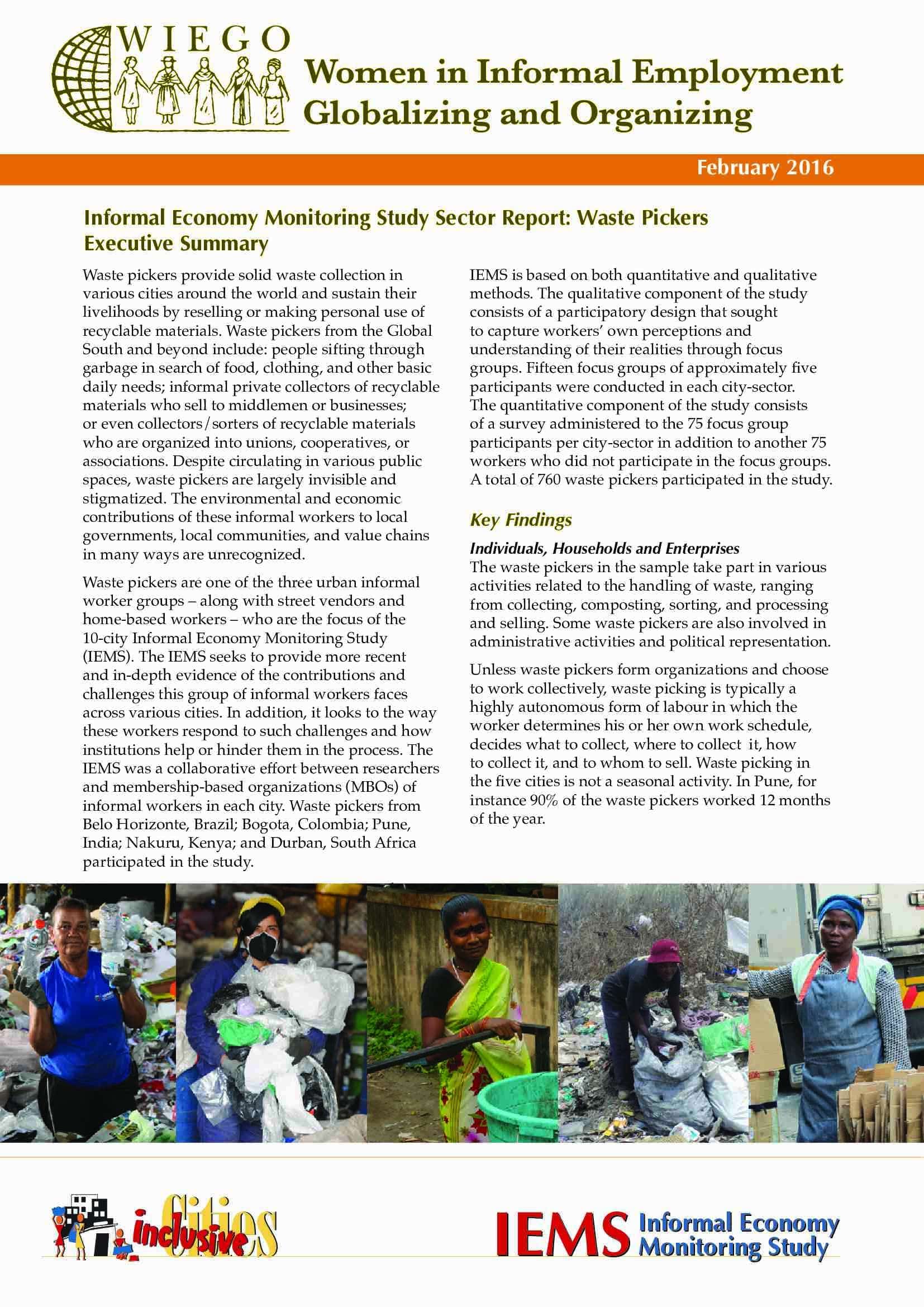Executive Summary: Informal Economy Monitoring Study Sector Report: Waste Pickers
Waste pickers provide solid waste collection in various cities around the world and sustain their livelihoods by reselling or making personal use of recyclable materials. Waste pickers from the Global South and beyond include: people sifting through
garbage in search of food, clothing, and other basic daily needs; informal private collectors of recyclable materials who sell to middlemen or businesses; or even collectors/sorters of recyclable materials who are organized into unions, cooperatives, or associations. Despite circulating in various public spaces, waste pickers are largely invisible and stigmatized. The environmental and economic contributions of these informal workers to local governments, local communities, and value chains in many ways are unrecognized.
Waste pickers are one of the three urban informal worker groups – along with street vendors and home-based workers – who are the focus of the 10-city Informal Economy Monitoring Study (IEMS). The IEMS seeks to provide more recent and in-depth evidence of the contributions and challenges this group of informal workers faces across various cities. In addition, it looks to the way these workers respond to such challenges and how institutions help or hinder them in the process. The IEMS was a collaborative effort between researchers and membership-based organizations (MBOs) of informal workers in each city. Waste pickers from Belo Horizonte, Brazil; Bogota, Colombia; Pune, India; Nakuru, Kenya; and Durban, South Africa participated in the study.
Read the Full Report | Sumário Executivo (português) | Resumen Ejecutivo (español)
View list of all: Research Reports

